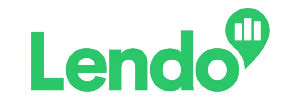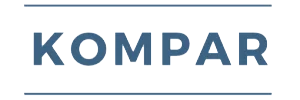Small Business Loans
Small Business Loan Sweden
Compare small business loans in Sweden
For startups, sole traders, and small ABs
Fast online application – from SEK 50,000
Recommended

Amount
SEK 50.000 – 5.000.000
(≈ USD 5.250 – 525.000)
Term
6-60 months
Interest rate
Varies
Answer within 24 hours
Apply in 1 min.
Only 1 Credit Check
Borrowing costs money.
If you are unable to repay your debt on time, you risk getting a payment default. This can make it harder to rent a home, sign contracts, or obtain new loans. For support, contact the municipal budget and debt counselling service. You can find contact information at konsumentverket.se.

Amount
SEK 25.000- 1.000.000
(≈ USD 2.600 – 105.000)
Term
24-60 months
Interest rate
Varies
Payment within 24 hours
Apply in 1 min.
Flexibel credit
Northmill Bank’s Flexible Business Loan is a solution for small and medium-sized businesses in all industries. With loan amounts from SEK 25,000 to SEK 1 million, businesses can manage their cash flow, finance growth or cover unexpected expenses. Use the credit when needed and only pay for what you use. Fast and digital application within minutes and disbursement within 24 hours. No commitment period, no hidden fees and full control over your financing.
Borrowing costs money.
If you are unable to repay your debt on time, you risk getting a payment default. This can make it harder to rent a home, sign contracts, or obtain new loans. For support, contact the municipal budget and debt counselling service. You can find contact information at konsumentverket.se.

Amount
SEK 10.000 – 30.000.000
(≈ USD 1.050 – 3.150.000)
Term
1-5 years
Interest rate
Varies
Payment in 1-10 days
Answers from up to 30 lenders
Recieve loan offers within 24 hours
Borrowing costs money.
If you are unable to repay your debt on time, you risk getting a payment default. This can make it harder to rent a home, sign contracts, or obtain new loans. For support, contact the municipal budget and debt counselling service. You can find contact information at konsumentverket.se.

Amount
SEK 30.000 – 1.000.000
(≈ USD 3.150 – 105.000)
Term
6-24 months
Interest rate
Varies
Verified Company
Apply for a business loan in a few min.
Unsecured business loans
Borrowing costs money.
If you are unable to repay your debt on time, you risk getting a payment default. This can make it harder to rent a home, sign contracts, or obtain new loans. For support, contact the municipal budget and debt counselling service. You can find contact information at konsumentverket.se.

Amount
SEK 20.000 – 7.000.000
(≈ USD 2.100 – 735.000)
Term
1-60 months
Interest rate
Varies
Payment within 24 hours
Apply in 1 min.
Answers from up to 30 lenders
Borrowing costs money.
If you are unable to repay your debt on time, you risk getting a payment default. This can make it harder to rent a home, sign contracts, or obtain new loans. For support, contact the municipal budget and debt counselling service. You can find contact information at konsumentverket.se.

Amount
SEK 50.000 – 2.000.000
(≈ USD 5.250 – 210.000)
Term
1-36 months
Interest rate
Varies
Verified Company
Apply in 1 min.
Answers from up to 22 lenders
Borrowing costs money.
If you are unable to repay your debt on time, you risk getting a payment default. This can make it harder to rent a home, sign contracts, or obtain new loans. For support, contact the municipal budget and debt counselling service. You can find contact information at konsumentverket.se.

Amount
SEK 10.000 – 10.000.000
(≈ USD 1.050 – 1.050.000)
Term
1-60 months
Interest rate
Varies
Payment within 24 hours
Apply in 1 min.
Answers from up to 20 lenders
Borrowing costs money.
If you are unable to repay your debt on time, you risk getting a payment default. This can make it harder to rent a home, sign contracts, or obtain new loans. For support, contact the municipal budget and debt counselling service. You can find contact information at konsumentverket.se.
Small business loans in Sweden give entrepreneurs and SMEs the funding they need to grow, hire, or survive difficult periods. Whether you’re running a one-person consultancy or managing a small team, the right loan can unlock capital fast — without selling equity or waiting months for investor approval.
What Counts as a Small Business in Sweden?
In Sweden, a small business is typically defined by its size, turnover, and number of employees. According to EU and Swedish classifications, a small enterprise has fewer than 50 employees and an annual turnover below SEK 100 million. This includes everything from small aktiebolag (AB) to sole proprietorships (enskild firma) and partnerships (HB).
Most lenders don’t use a strict legal definition but assess each business based on operational scale and revenue. If you’re running a local shop, a consulting firm, or a small e-commerce company, you’re considered a small business in the eyes of most loan providers. What matters most is your ability to generate stable income and manage repayments — not your legal form or number of employees.
Types of Small Business Loans Available
Swedish lenders offer a variety of financing options tailored to the needs of small businesses. Whether you’re looking for a one-time investment, short-term liquidity, or a way to handle late-paying clients, there’s likely a loan type that fits.
Small Business Loan Comparison
| Loan Type | Best For | Typical Amount | Secured? | Approval Speed |
|---|---|---|---|---|
| Small business term loan | General growth, investment | SEK 100,000 – 3,000,000 | Often yes | 3–10 business days |
| Unsecured loan | Quick capital, no assets | SEK 50,000 – 1,000,000 | No | 1–5 business days |
| Line of credit | Ongoing short-term needs | SEK 50,000 – 2,000,000 | Sometimes | 1–3 business days |
| Invoice financing | Late-paying B2B customers | Up to 90% of invoice | Yes | 24–72 hours |
| Equipment loan | Machinery, vehicles, tools | SEK 100,000 – 2,000,000 | Yes | 3–7 business days |
Small Business Term Loan
This is the most common loan type for general business needs — from expanding your office to hiring staff or launching a new product. It’s repaid in fixed monthly instalments and usually requires some form of collateral. Lenders assess your revenue, profit margins, and overall stability before approval.
Unsecured Loan
Unsecured loans are ideal for small businesses without assets to pledge. They’re easier to access, faster to approve, and often used for marketing campaigns, short-term hires, or bridging small gaps. However, they come with higher interest rates and lower maximum amounts.
Line of Credit
A revolving credit facility allows you to draw funds as needed, up to a set limit. You only pay interest on what you use, making it flexible for seasonal businesses or those with irregular cash flow. Some lenders require security, but many offer unsecured versions for smaller limits.
Invoice Financing
If your business issues invoices with long payment terms, invoice financing lets you unlock up to 90% of their value immediately. This improves liquidity without taking on traditional debt. Once the client pays, the remaining amount is settled minus a fee.
Equipment Loan
An equipment loan lets you finance the purchase of machinery, vehicles, or tools by using the asset itself as collateral. It’s a structured, predictable option for investing in growth-critical infrastructure — and often easier to get than unsecured capital.
How to Qualify for a Small Business Loan
To qualify for a small business loan in Sweden, your company must meet a few key requirements related to registration, revenue, and creditworthiness. While exact criteria vary by lender, most follow a similar structure when evaluating applications.
Business Registration and Time in Operation
Your business must be legally registered in Sweden — typically as an aktiebolag (AB), enskild firma, or handelsbolag (HB). Most lenders require that your business has been active for at least 6 to 12 months, although some online lenders and public agencies like ALMI may consider newer businesses if other conditions are strong.
Minimum Revenue
Lenders usually expect a monthly turnover of at least SEK 50,000–100,000 to ensure that your business can handle loan repayments. The exact figure varies depending on loan size, loan type, and whether it’s secured or unsecured. If your revenue is seasonal, some lenders will consider average income over the year.
Credit Evaluation
Both business credit and, in some cases, the personal credit score of the owner are checked — especially for sole proprietorships or new businesses. A clean credit history increases your chances of approval and lowers your interest rate. If you’ve had payment issues in the past, you may still qualify for higher-interest unsecured loans, but fewer lenders will consider your application.
Documentation and Collateral
For most loan types, you’ll need to provide:
- Financial statements or bookkeeping records
- Tax declarations and recent VAT filings
- Bank account statements
- Personal ID for the legal signatory
Some lenders require collateral, such as equipment or real estate. Others offer unsecured loans but may request a personal guarantee, especially for newer or smaller companies.
Special Cases: Sole Proprietors and Startups
If you operate as an enskild firma or are in the early startup phase, your application is often assessed on personal financial history, business projections, and client contracts. You may have access to startup loans or public funding where traditional banks would otherwise decline. Personal liability is usually higher in these cases, and you’ll often be asked to co-sign as an individual.
How to Apply for a Small Business Loan
Applying for a small business loan in Sweden is a straightforward process, especially with the rise of digital lenders. Still, being prepared can increase your chances of approval and speed up the payout.
- Define the Purpose and Amount
- Choose the Right Loan Type and Lender
- Gather Required Documents
- Submit Your Application
- Review and Accept an Offer
Step 1: Define the Purpose and Amount
Start by determining exactly why you need the loan and how much funding is required. Whether it’s for inventory, hiring, marketing, or equipment, lenders will want to see a clear purpose that aligns with your business’s needs and repayment ability.
Step 2: Choose the Right Loan Type and Lender
Select the loan type that fits your situation — for example, a line of credit for flexible needs or a term loan for a specific investment. Then compare offers from banks, online platforms, or state-owned lenders like ALMI. Many fintech lenders offer fast approval with fewer documents.
Step 3: Gather Required Documents
Most lenders will ask for:
- Business registration number (organisationsnummer)
- Financial statements or bookkeeping data
- Tax records (Skatteverket)
- Bank statements (typically 3–6 months)
- Personal ID of owner or signatory
Startups or sole proprietors may need to submit a business plan or projected cash flow if they lack financial history.
Step 4: Submit Your Application
Applications can usually be submitted online in under 10 minutes. You’ll be asked to enter company details, contact info, loan amount, and purpose. Some platforms allow you to compare multiple offers with a single application.
Step 5: Review and Accept an Offer
If approved, you’ll receive a loan offer with the amount, interest rate, repayment term, and any fees. Review the terms carefully before accepting. Once signed, funds are often transferred within 1–5 business days, depending on the lender.
Tip: One of the fastest ways to improve your loan chances is to show consistent monthly income. Even if your business is small or new, lenders value predictable revenue more than high peaks with irregular dips. Use clean bookkeeping and updated bank statements to demonstrate stability — it can lead to better terms and faster approval.
Interest Rates for Small Business Loans in Sweden
Interest rates for small business loans in Sweden vary depending on the lender, loan type, and your company’s financial profile. In general, rates range from 4% to 12% annually for most businesses, but startups or unsecured borrowers may face higher rates — sometimes over 15%.
Lenders assess your risk level based on factors like revenue stability, credit score, time in business, and whether the loan is secured. Banks tend to offer lower rates but stricter requirements, while online lenders are faster and more flexible — at the cost of slightly higher interest.
Interest Rate Overview by Loan Type
| Loan Type | Interest Rate (Annual) | Secured? | Best For | Typical Duration |
|---|---|---|---|---|
| Term Loan | 4% – 10% | Often yes | Investments, expansion, stable income | 1–10 years |
| Unsecured Loan | 6% – 15%+ | No | Quick access, smaller businesses | 1–5 years |
| Line of Credit | 5% – 12% | Sometimes | Flexible short-term needs | Revolving |
| Invoice Financing | 1% – 3% (monthly fee) | Yes (invoice) | B2B firms with long payment terms | 30–90 days |
| Equipment Loan | 4% – 9% | Yes | Machinery, tools, vehicles | 1–7 years |
| ALMI Loan (Startup/Growth) | 5% – 9% | Sometimes | Startups or firms without bank access | 1–6 years |
Small businesses with strong revenue and good credit will typically qualify for rates below 10%. If your business is new, lacks collateral, or has limited financial history, expect to pay more — or consider state-backed options like ALMI, which are more risk-tolerant.
Always compare APR, not just the nominal rate, to understand the full cost including fees and setup charges.
Government Support for Small Businesses
In Sweden, small businesses can tap into several public support systems beyond traditional lending options. These are designed to bolster startups, foster innovation, and drive regional development.
ALMI, a state-owned organization, plays a central role for small enterprises. It provides both startup and growth loans under more flexible conditions than commercial banks. ALMI evaluates your business plan and potential rather than relying solely on financial history, making it a good option for young or expanding businesses.
Tillväxtverket, the Swedish Agency for Economic and Regional Growth, manages support programs that help small businesses invest in digitalisation, green transformation, or export. These take the form of regional grants or advisory schemes and often target companies operating in rural or structurally challenged areas.
Local municipalities also often offer tailored startup grants and mentoring programs. Many firms benefit from free, hands-on coaching through initiatives like Nyföretagarcentrum, where expert advisors help guide entrepreneurs through financing strategies, grant applications, and business development challenges.
FAQ
Small Business Loans in Sweden
Yes. Enskild firma (sole proprietors) can apply for business loans, but lenders may evaluate the owner’s personal credit and income. Some loans may also require a personal guarantee.
Loan amounts typically range from SEK 50,000 to over 3 million, depending on your revenue, credit history, and whether the loan is secured. Startups and newer businesses may be limited to smaller amounts initially.
Not always. Unsecured loans are available for small businesses, especially through online lenders. However, secured loans — backed by property, equipment, or invoices — often come with better terms and higher limits.
Most small business loans in Sweden come with annual interest rates between 4% and 12%. Startups or borrowers without collateral may pay more, especially for unsecured or short-term loans.
Yes. ALMI offers state-backed loans with flexible terms for startups and growth-stage companies. In addition, Tillväxtverket and municipalities may provide grants or subsidies tied to innovation, employment, or rural development.
If approved, online lenders often disburse funds within 1–3 business days. Bank loans or public funding may take longer, especially if they involve manual review or co-financing.
Many lenders allow early repayment without penalty, particularly fintech platforms. Traditional banks may charge a fee, especially on fixed-rate loans. Always check the terms before signing.
